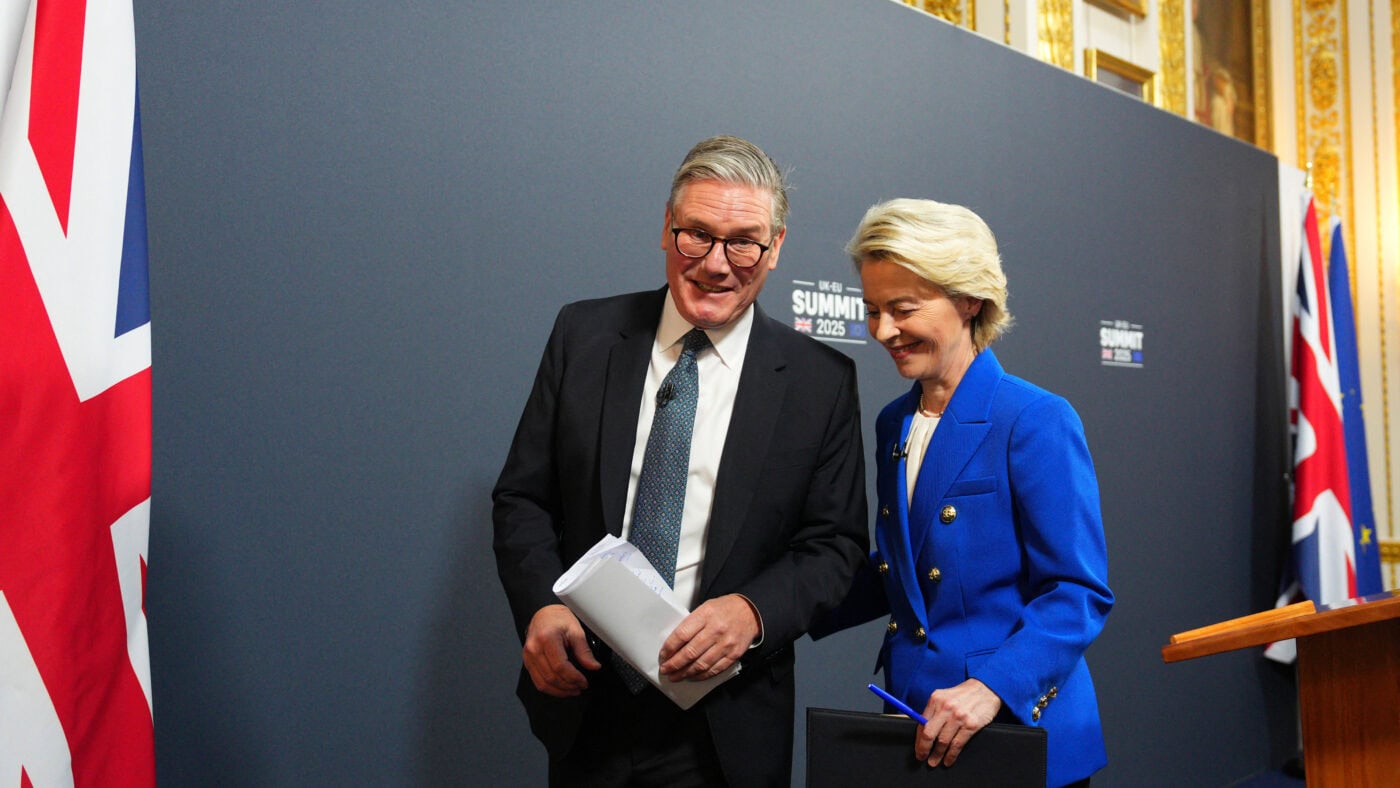The ‘EU reset’ proposal has undermined British control over its trade and regulatory autonomy. While the Prime Minister calls this agreement pragmatic – hoping it will boost the UK economy by £9 billion per year by 2040 – its terms tie the UK to EU rules across critical policy areas, from food safety to fisheries, while jeopardising Britain’s ability to strike new deals with allies. This deal represents not a recalibration but a regression, binding Britain to Brussels’ orbit through mechanisms that undermine Britain’s ability to govern itself.
Central to the reset is the veterinary agreement that forces the UK to align with EU Sanitary and Phytosanitary (SPS) standards. By adopting EU food safety, animal health and plant protection rules, Britain forfeits its capacity to diverge. This conflicts with its membership of the Comprehensive and Progressive Agreement for Trans-Pacific Partnership (CPTPP) trade bloc and its emerging deal with the United States.
Perhaps the most concerning is the European Court of Justice’s (ECJ) revived role in UK affairs. Under the veterinary agreement, any disputes over SPS compliance would be settled by the ECJ, reintroducing foreign judicial oversight that ended in 2020, when the UK left the EU. This mirrors the Windsor Framework’s controversial dynamic alignment framework, exporting regulatory sovereignty to Luxembourg. Submitting to ECJ authority on food standards is a major step backwards for British sovereignty. Put simply, our rules will be made elsewhere.
This deal also threatens British energy independence, thanks to a commitment to link EU and UK carbon markets. The UK Emissions Trading Scheme (UK ETS) sets a lower price for industrial carbon (£41.84 per tonne in January 2025) than the EU ETS (€71.52/£59.85), which has been about 50% higher over the past two years. Coming into line with the EU will impose higher and more volatile carbon prices on UK industries, and give up the flexibility to set our own carbon pricing in line with domestic economic needs.
Furthermore, the UK would forfeit the ability to use carbon pricing as a competitive tool to attract investment, becoming a ‘price-taker’ subject to the EU Carbon Adjustment Mechanism (CBAM). This could also limit the Government’s ability to tailor free allowances or sector-specific and household support, as the EU CBAM takes authority to set these prices. The forthcoming EU ETS 2 will extend carbon pricing to heating and road transport fuels, which will pass costs onto homeowners, consumers and businesses. The World Wildlife Fund estimates that households in high-income EU Member States could see household energy costs rise by 0.4–0.8% as a result of this regulation. This could be Britain’s fate by complying with EU ETS guidelines via dynamic alignment.
The deal’s 12-year fishing accord grants EU vessels continued access to UK waters. This has locked the UK in a prolonged resource-sharing model that favours EU fleets, with the UK maintaining only 25% of EU fishing quotas rather than the 80% initially sought by the UK in earlier negotiations. For 2025, this represents a fishing quota of 747,000 tonnes (down 5% from 2024), valued at £956 million. Trawlers from the EU will maintain disproportionate access under quotas gaining them access to major fish produce, including 91% of Haddock, and 85% in Pollock.
The proposed youth experience scheme and association with the EU Erasmus+ programme seem to ignore public frustration over immigration, allowing 18–40-year-olds reciprocal work rights. Concerns over issues such as these were central drivers of the vote to leave the EU in 2016. While this is framed as cultural exchange, uncapped participation could lead to de facto free movement, straining public services and diluting wage growth in sectors like hospitality and healthcare. Worse, it remains unclear whether the EU will reciprocate Britain’s offer of visa-free access for professionals, creating a one-sided arrangement that prioritises EU labour-market needs over UK interests.
Prioritising EU regulatory harmony limits the UK’s ability to set its own trade policies. For instance, EU packaging rules will require British exporters to follow stricter EU standards, making it harder for the UK to comply with CPTPP SPS rules for trade with the Pacific nations. This means that the UK will lose its current flexibility to set trade policies to suit its own interest or those of non-EU partners. If the UK tries to diverge from EU rules to accommodate new trade partners, or comply with CPTPP SPS rules for instance, it risks legal challenges and penalties. Instead of resolving differences through independent UK courts or neutral international panels, the UK could find itself bound by EU interpretations and judgments, making true regulatory independence almost impossible.
If the proposed reset agreement is implemented, Britain would see changes to the regulatory and judicial autonomy it established after leaving the EU. From gene-edited crops stalled by EU diktats to fisheries managed for continental benefit, the agreement makes the UK subordinate to the EU under the guise of pragmatism. While offering marginal reductions in trade friction, it forecloses opportunities in faster-growing global markets, binding the UK to a declining economic bloc’s trajectory. Far from resetting relations, this deal makes Britain a rule-taker, jeopardising both sovereignty and future prosperity.
Click here to subscribe to our daily briefing – the best pieces from CapX and across the web.
CapX depends on the generosity of its readers. If you value what we do, please consider making a donation.


